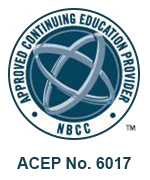Weekend Conference November 5-7, 2021 will be distance learning via Zoom videoconference platform. Open to mental health professionals and mental health professionals-in-training.
Program Date(s):
November 5, 2021 - November 7, 2021Weekend Overview
The theme of this weekend is the establishment of the relational foundations of reflection in children and adults. Today we focus a great deal on the importance of mentalization and reflection in psychotherapy, both with children and adults. And yet so often we are confronted with patients’ inability to mentalize as a function of attachment traumas and other forms of adversity. We will focus on the ways that the establishment of safety, regulation and relationship in the patient (or parent-child dyad), creates the necessary context for reflection, self-understanding, and compassion. We will also focus on the establishment of these processes in clinicians. We will ground our discussion in attachment and mentalization theories, scientific and clinical research, and intervention approaches to working with parents and young children.
The course will use lecture, large group discussion, small group/GAM group discussion, case presentation and discussion and informal discussion to achieve the course objectives.
Friday 10:00am – 6:10 pm US ET
Saturday 9:45 am – 6:20pm US ET
Sunday 10:00 am – 2:00pm US ET
Detailed schedules and reading lists will be provided to registered attendees.
Arietta Slade, PhD
 Arietta Slade, Ph.D. is Professor of Clinical Child Psychology at the Yale Child Study Center. An internationally recognized theoretician, clinician, researcher, and teacher, she has written widely on the development of parental reflective functioning, as well as the implications of attachment and mentalization theory for child and adult psychotherapy, and for relationship-based infant mental health practice. She is a Co-Founder and Director of Training of Minding the Baby®, an evidence-based interdisciplinary reflective home visiting program for high-risk mothers, infants, and their families, at the Yale Child Study Center and School of Nursing. Dr. Slade is a winner of the Bowlby-Ainsworth Award from the New York Attachment Consortium, and author, with Jeremy Holmes, of Attachment in Therapeutic Practice (Holmes & Slade, SAGE Publications, 2018), and editor of the six volume set, Major Work on Attachment (Slade & Holmes, SAGE Publications, 2014), of Mind to Mind: Infant Research, Neuroscience, and Psychoanalysis (Jurist, Slade, & Bergner, Other Press, 2008), and Children at Play (Slade & Wolf, Oxford University Press, 1994). Currently, she and her Minding the Baby® colleagues are writing a book on reflective parenting (Forthcoming, Guilford, 2021). She has also been in private practice for nearly 40 years, working with individuals of all ages.
Arietta Slade, Ph.D. is Professor of Clinical Child Psychology at the Yale Child Study Center. An internationally recognized theoretician, clinician, researcher, and teacher, she has written widely on the development of parental reflective functioning, as well as the implications of attachment and mentalization theory for child and adult psychotherapy, and for relationship-based infant mental health practice. She is a Co-Founder and Director of Training of Minding the Baby®, an evidence-based interdisciplinary reflective home visiting program for high-risk mothers, infants, and their families, at the Yale Child Study Center and School of Nursing. Dr. Slade is a winner of the Bowlby-Ainsworth Award from the New York Attachment Consortium, and author, with Jeremy Holmes, of Attachment in Therapeutic Practice (Holmes & Slade, SAGE Publications, 2018), and editor of the six volume set, Major Work on Attachment (Slade & Holmes, SAGE Publications, 2014), of Mind to Mind: Infant Research, Neuroscience, and Psychoanalysis (Jurist, Slade, & Bergner, Other Press, 2008), and Children at Play (Slade & Wolf, Oxford University Press, 1994). Currently, she and her Minding the Baby® colleagues are writing a book on reflective parenting (Forthcoming, Guilford, 2021). She has also been in private practice for nearly 40 years, working with individuals of all ages.
Schedule of Presentations
Preconference day has separate registration, see link in schedule
Educational Objectives
After each of the following sessions, participants will be able to:
Friday November 5th, 2021
From Rage to Fear to “We”: The Attachment Paradigm
- Describe the evolutionary and psychic function of the attachment system in adults and children and the role of parental mentalization in the development and maintenance of secure attachment
- Describe how the parent’s inability to metabolize and contain negative affect disrupts crucial relational processes.
Small Group
- Describe the psychic function of the attachment system by employing your own personal and clinical experiences.
- Describe three characteristics of a secure attachment and the effects of the parent’s inability to metabolize and contain negative affect upon the relationship with their children.
Two Mouths, One Story?
Case presentation and discussion
- Describe how the potential for mentalizing can be awakened and developed through a new experience of “good enough” attachment, and how the clinicians´ regulation of affect can enhance the mentalization capacities in the patient.
- Describe how the social-cognitive and emotional regulation capacities are strengthened when the parents mentalize with the child.
Small Group
- Discuss two clinical case examples that illustrate ways that “epistemic trust” can develop within the therapeutic relationship;
- Identify and describe three clinical examples that demonstrate the importance of mentalization at advancing development
Saturday November 6, 2021
The Relational Foundations of Reflection
- Describe the relationship between safety, regulation and relationship in the development of reflective capacities
- Describe two ways that threat, dysregulation, and relational breakdown operate in clinical work with parents and children as well as ways that they impact trust and mentalization capacities
Small Group
- Describe and discuss two factors involved in the development of reflective capacities.
- Demonstrate two ways that threat, dysregulation and relational breakdown can be assessed by referencing clinical experiences.
Adversity and Attachment Trauma
- Describe two core features of complex trauma disorder and two posttraumatic adaptations that underlie developmental trauma
- Describe the impact of complex trauma on parenting
Small Group
- Describe two core features of complex trauma disorder and key posttraumatic adaptations that underlie attachment trauma.
- Describe three examples as to how complex trauma impacts parenting
Plenary
- Discuss three concepts drawn from the theory, clinical case material, and personal experiences pertaining to the Relational Foundation of reflection within the plenary discussion;
- Describe three consequences of pervasive trauma in clinical work with children and adults.
Sunday November 7, 2021
Bringing It All Together: Working with Parents and Children
- Describe three defining characteristics of the Minding the Baby®, an interdisciplinary reflective home visiting program for families living below the poverty line with high levels of environmental stress and socioeconomic risk.
- Discuss the role of attachment and mentalizing processes and the ways of working with mentalization failures and promoting mentalization in parents and their children.
Small Group
- List 3 reasons why the Minding the Baby® home visiting program may be very helpful for families living below the poverty line with high levels of environmental stress and socioeconomic risk.
- Discuss and identify the importance for helping parents to develop their own mentalization ability.
Closing Dialogue
- Discuss three techniques presented by Dr. Arietta Slade relating to the importance of mentalization and reflection in psychotherapy, both with children and adults.
- Give two examples from the scientific and clinical research that provide empirical evidence for the link between the establishment of safety, regulation, and relationship in the patient (or parent-child dyad) and improved clinical outcomes in children with attachment traumas
Registration
Full Conference:
$497 up to 21 days in advance; $517 thereafter
*Full members: $359
*Associate members: $410
Full time students: $150
Saturday One Day (morning and afternoon): $150
Saturday Morning only: $45
*Login to the website with your member information to access your discounted registration rate
Tuition and Fees
See costs above
Limited scholarship funds are available for this training: https://theipi.org/scholarships/
Continuing Education Credit Hours
Weekend Conference:
14.5 CE/CME credits – including 2.5 diversity credits
Saturday One Day:
6 CE/CME credits
Saturday Morning only:
2.5 CE/CME credits
Program Chair
Ana María Barroso Castro MD and Flora Barragan MA

Ana María Barroso Castro M.D.
- Psyquiatrist, Child psyquiatrist, Psychoanalist. Child psychotherapist.
- Graduated in Object Relations Theory and Practice in the IPI.
- Graduated in Fellows Program in the IPI.
- Teacher and supervisor in Child Psychotherapy Program in the IPI
- Full time prívate practice in Mexico City. Working with Children, Adolescents and Adults.
- Coordinator of the Study Group in Object Relations Theory in Mexico City.
 Flora Barragan MA
Flora Barragan MA
- Child, adolescence, and adults Psychotherapist in Mexico City
- Child and adolescent training (IPI)
- Advance Candidate IIPT (IPI)
- Faculty at IPI since 09/20
- Certification as a practitioner, at the Anna Freud Center, as MBT-C
Membership Benefits
Become a member of IPI at the “Associate Member PLUS”, or “Full Member PLUS” level and you will receive an IPI Zoom Pro account as one of your member benefits. Associate and Full Members also receive discounted registration fees for most of IPI’s events, a subscription to PEP Web, the online psychoanalytic library, and other benefits depending on membership level.
HIPAA compliant Zoom video accounts are provided for all IPI Associate Member Plus and Full Member Plus memberships. IPI has a HIPAA Business Associate Agreement with Zoom, which provides a HIPAA compliant platform for our accounts. HIPPA compliance is strongly recommended for all internet-mediated clinical work and clinical teaching. The “PLUS” add-on to the IPI membership gives the user the ability to host online meetings with multiple people at the same time. [Current members can upgrade to the “Plus” account and only pay the difference in price from your current membership level.]
Click for IPI Membership and Zoom Account information
Continuing Education Information
This activity has been planned and implemented in accordance with the accreditation requirements and policies of the Accreditation Council for Continuing Medical Education (ACCME) through the joint providership of American Psychoanalytic Association and the International Psychotherapy Institute. The American Psychoanalytic Association is accredited by the ACCME to provide continuing medical education for physicians.”
The American Psychoanalytic Association designates this Live Activity for a maximum of 14.5 AMA PRA Category 1 Credit(s)™. Physicians should claim only the credit commensurate with the extent of their participation in the activity.
IMPORTANT DISCLOSURE INFORMATION FOR ALL LEARNERS: None of the planners and presenters for this educational activity have relevant financial relationship(s)* to disclose with ineligible companies* whose primary business is producing, marketing, selling, re-selling, or distributing healthcare products used by or on patients.
*Financial relationships are relevant if the educational content an individual can control is related to the business lines or products of the ineligible company.
The International Psychotherapy Institute, IPI, is approved by The American Psychological Association to sponsor continuing education for psychologists. IPI maintains responsibility for the program and its content. The International Psychotherapy Institute has been approved by NBCC as an Approved Continuing Education Provider, ACEP No. 6017. Programs that do not qualify for NBCC credit are clearly identified. The International Psychotherapy Institute is responsible for all aspects of the programs. The International Psychotherapy Institute is an approved sponsor of the Maryland Board of Social Work Examiners for continuing education credits for licensed social workers in Maryland. The International Psychotherapy Institute is recognized by the New York State Education Department’s State Board for Social Work as an approved provider of continuing education for licensed social workers #SW-0299.
Participants are responsible for verifying that IPI CE credit is accepted by the licensing boards in their own states. Please note: At this time we are aware that CE credit for IPI events will not be accepted by the New Jersey Board of Social Work.



